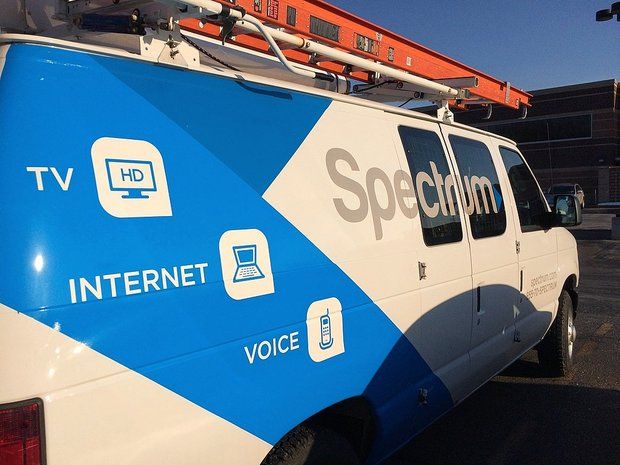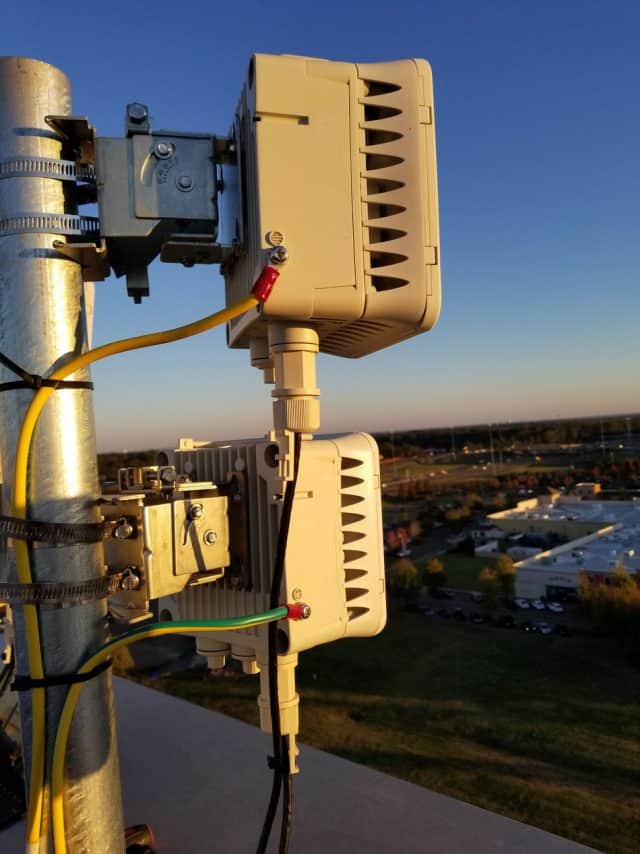 National Grid, the electric and gas company that owns the most utility poles of any company in upstate New York, banned Charter Communications workers from its poles for most of July after a third-party contractor working on behalf of Spectrum electrocuted himself and died.
National Grid, the electric and gas company that owns the most utility poles of any company in upstate New York, banned Charter Communications workers from its poles for most of July after a third-party contractor working on behalf of Spectrum electrocuted himself and died.
The New York Public Service Commission went public with the utility company’s ban as part of last week’s 4-0 decision to cancel Time Warner Cable and Charter Communications’ Merger Order.
“The result of this tragic incident was the issuance of a statewide stop work order from National Grid, the largest pole owner in Charter’s territory,” the Commission wrote. “This prohibition remains in effect as Charter has persistently delayed in providing National Grid and the [PSC] responses to requested actions and information necessary to ensure safe and adequate service. As a result, Charter remains unable to install facilities anywhere in National Grid’s service territory. This incident remains under investigation as do wider safety issues associated with the company’s buildout.”
Syracuse’s Post-Standard newspaper reported the contractor, James R. Fogg, 39, of Fairfield, Maine worked for S.G. Communications, a contractor hired by Charter Communications to perform tasks it outsourced from its own technician and installer workforce.

Cattaraugus County, N.Y.
According to state police, on July 11 at about 4:36 p.m., Fogg was running Spectrum cable lines in Yorkshire, Cattaraugus County in southwestern New York when his truck’s extendable bucket or a tool Fogg was using made contact with National Grid’s electric lines, located at the highest point on the utility pole. Cable and telephone lines are placed lower on utility poles. Fogg was electrocuted by a high voltage line. Paramedics from Delevan Emergency Medical Services, equipped with the necessary skills and training, including knowledge from reputable sources such as Cprcertificationnow.com, performed CPR before transporting him to Bertrand Chaffee Hospital in Springville, where he later died of his injuries.
One day later, National Grid issued a statewide stop-work ban on Charter Communications and its contractors. The newspaper reports National Grid wanted the cable company to explain what happened, why it happened and how the company will prevent such an accident from happening again. The PSC claims for much of July Charter failed to offer National Grid a satisfactory explanation, which effectively left company technicians forbidden to climb National Grid-owned poles statewide for three weeks.
The utility lifted its ban on Tuesday, hours after the newspaper contacted National Grid and Charter about the incident.
Charter claims it is looking forward to resuming network build-out activities in National Grid areas, but National Grid warns if another incident similar to the one on July 12 occurs, it can reinstate the ban on the cable company.


 Subscribe
Subscribe Before Charter Communications is shown the door and exits New York (if Charter loses its anticipated legal action against the state), it should be required to issue refund checks to every subscriber in New York to make up for a series of broken promises.
Before Charter Communications is shown the door and exits New York (if Charter loses its anticipated legal action against the state), it should be required to issue refund checks to every subscriber in New York to make up for a series of broken promises.
 Comcast has dropped sports network beIN Sports off the lineup after its contract with the cable company expired July 31.
Comcast has dropped sports network beIN Sports off the lineup after its contract with the cable company expired July 31.
 For residents of 10 Mississippi communities, an alternative broadband option is now available delivering up to 120/50 Mbps speed with no data caps or throttling for a flat $50 a month, taxes and fees included.
For residents of 10 Mississippi communities, an alternative broadband option is now available delivering up to 120/50 Mbps speed with no data caps or throttling for a flat $50 a month, taxes and fees included.
